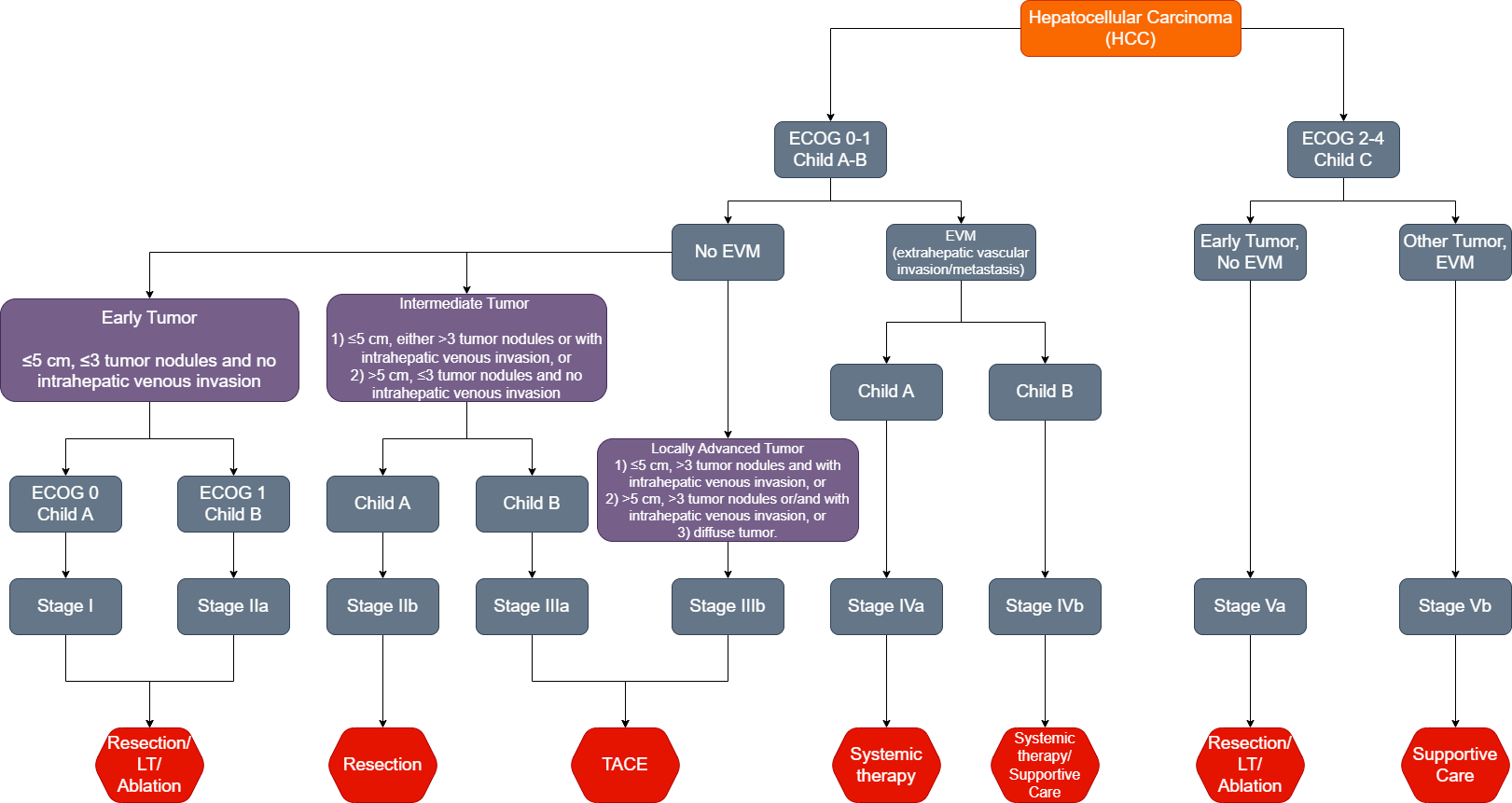Hong Kong Liver Cancer (HKLC) staging system
The Hong Kong Liver Cancer (HKLC) staging system was developed for patients with predominantly HBV-related hepatocellular carcinoma (HCC). It considers the availability of effective antiviral therapy for hepatitis B, which may lead to more aggressive treatments and potentially influence patient survival. However, since antiviral therapy is administered irrespective of the disease stage, it may not significantly impact the staging classification of patients.
HKLC, similar to the BCLC system, correlates HCC stages with appropriate treatment options. It is based on four established prognostic factors: ECOG performance status, Child-Pugh grade, liver tumor status, and the presence of extrahepatic vascular invasion or metastasis. The classification divides patients into five main groups and nine subgroups, each associated with distinct survival outcomes. The system was derived from studying a cohort of 3856 HCC patients primarily with HBV infection treated at a single institution.
- Yau T, Tang VY, Yao TJ, Fan ST, Lo CM, Poon RT. Development of Hong Kong Liver Cancer staging system with treatment stratification for patients with hepatocellular carcinoma. Gastroenterology. 2014 Jun 1;146(7):1691-700.
- Karademir S. Staging of hepatocellular carcinoma. Hepatoma Res. 2018;4:58.
- Kinoshita, Akiyoshi et al. “Staging systems for hepatocellular carcinoma: Current status and future perspectives.” World journal of hepatology vol. 7,3 (2015): 406-24. doi:10.4254/wjh.v7.i3.406






